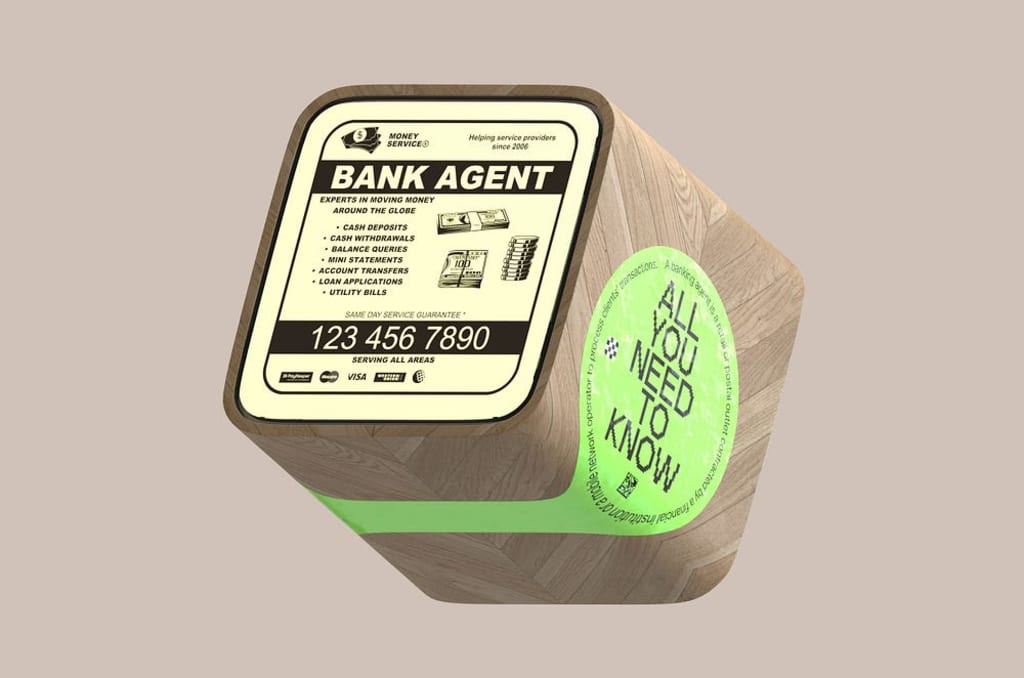Agency Banking: What It Is and How It Helps Payment Service Providers
Ever wondered what agency banking is, where it fits into the economy, and how it helps businesses? Read our detailed guide to find out more about agent bank services.

Ever wondered what agency banking is, where it fits into the economy, and how it helps businesses? Read our detailed guide to find out more about agent bank services.
Agency banking allows banks and payment processing businesses to join a third-party arrangement (such as Faster Payments in the UK) using their Bank Identifier Code (BIC), and account numbers for payments and collections. This helps increase the reach of payments firms and bring them to new customers.
What Is Agency Banking?
Agency banking is a form of indirect access to payments systems wherein agent banks act as intermediaries between a client and a banking service. The agent bank provides the platform for entry to an otherwise inaccessible service. Agency banking first appeared in Bangladesh in 2013 with the goal of bringing bank access to people in rural, underserved locations.
What Is a Banking Agent?
A banking agent provides the access to their jurisdiction for a third-party company via a contractual agreement. Big banks previously had a monopoly on banking access in the world's largest financial centers. However, the competitiveness of the sector has started to open up with more globalized world and new technology.
Global Processing Service and Banking Agents
Global Processing Services (GPS) is a form of banking agent. They are certified by Visa and MasterCard and help numerous payment providers to process global credit and debit transactions. By using Global Processing Services, payment providers only need a contract with one firm and can offer clients access to payments in over 40 different countries.
What Are the Benefits of Agency Banking?
Agency banking is a good solution for payments providers that want access to a certain country but not enough to acquire full regulatory approval for processing local payments there. They may have a small footprint in a country based on their client list but it would be too time-consuming/expensive to set up a full regulatory status in each country so they use an agent bank to gain access to more regions. A banking agent is often essential to the business model of a new online bank with a global footprint. These "challenger banks" are built on the promise of lower costs on multi-currency, cross-border transactions, and banking agents help make this possible.
Is Agency Banking Right for Me and My Business?
Agency banking is a good option for businesses that want to process payments several regions but do not need to pursue a full banking licence in each particular jurisdiction. For instance, if you do a small amount of payment processing in a country and plan to scale up at a later date, a banking agent will give you access to that region. Using a banking agent can be a helpful way to enter a new country and start small to test the long-term viability for your business.
Why Is There a Need for Agency Banking?
The need for agency banking boils down to the following reasons:
High Operations/Set Up Costs
It is too expensive to set up a brick and mortar branch and/or acquire regulatory approval in every location that you want to provide services. This often means rural or isolated areas do not gain access to banking services and payment service providers are limited in where they can operate. Agency banks are a way to boost the number of persons with access to banking services in rural areas, for example.
Limited Scaling Opportunities
It is also hard to scale the business if you are dealing with occasional transfers. In the rural services example, the customer reach makes it hard to scale the bank's business in certain business areas. Agent banking with a digital presence makes it easier to provide banking services in a larger number of countries and scale the business.
Low Profitability
Having a direct presence in a country means that you can only profit from the customers that visit the bank and hold accounts there. With indirect banking there is an ability to provide a digital business with a larger footprint that can provide better overheads and increase its product offerings.
Lack of Agility
Banking agents are giving companies the potential for a more nimble service offering. These can be provided in unbanked, and underserved areas. The types of businesses served may be grocery stores, fuel stations, or postal services and they can provide payment services without the need for extensive applications.
They will also operate a different style of service with agents now able to visit customers door-to-door with mobile phones, tablets, or card payment machines. Other agents may provide the same services but from a fixed location.
Which Parties Are Involved in Agency Banking?
The following is list of the different parties involved in agency banking:
Service Providers
Banking agents are retailers authorized to conduct banking services on behalf of banks and financial institutions. They provide banking services to customers in remote areas.
Banks/Financial Institutions
The banks and financial institutions are allowing service providers to access their services with a contract to act as an agent for the smaller companies. Money still goes through the payments systems used by larger banks, but it is being sent or deposited from the small agent businesses.
Sub Agents
Some banking agents will make a business out of the service by forming other affiliate agents and increasing their income via increased commission. The agents are often known as super-or-sub-agents.
Consumers
Consumers are the end goal for the agency banking system. They are providing banks with an extended customer base, increasing competition in the sector, and receiving bank services in areas where they were previously unavailable.
Advantages of Agency Banking for Banks
The following are some of the advantages that banks will find when using an agent.
Minimized Costs
Banking service providers can now provide services without the cost of having a branch. It is also hard to compete on branding costs with high street banks.
Increased Customer Base
By providing services in remote areas and also extending the footprint to other countries, a larger customer base is possible. A remote store could increase profitability by offering withdrawal and transfer services. A customer seeking to send money to family and also buy groceries can do both in the same place and it increases the likelihood they will use the location regularly.
Maintenance of Asset Quality
Banks and financial institutions will have a good relationship with banking agents and they can outsource some of the asset risk, or ensure that they know the finances of the service provider.
Trust/Awareness Built Among Customers
Despite not spending money on a branch and branding, service providers can leverage their own location and trust in the community to build customer loyalty. A fuel station that has been serving a community for years can suddenly offer banking services and it solves the same problem as a bank branch.
Enriched Customer Experience
Customers can find banking services much closer to home and they can also receive a service that arrives at their front door. This can help customers who do not have good mobility and it is a service that is now possible with digital technology and banking agents.
High Security
Individuals had to rely on cash for payments in rural or remote areas but now they can store money in an account and also use the chip and pin card services.
Which Services Can Be Provided by Banks via Agency Banking?
Cash Deposits - Customers can send money to their account via an agent.
Cash Withdrawals - Customers can withdraw cash at a fuel station or grocery store for purchases.
Balance Queries - Up to date balance information.
Mini Statements - A paper-based statement of the current account status or recent payment transfer.
Account transfers - Move money between accounts to send money to family.
Loan Applications - Make an application to borrow money.
Utility Bills - Pay for energy bills or other utilities easily.
Customer onboarding - Account opening service for customers.
Loan repayment plans - Pay back a loan easily and regularly.
Credit/debit card payments - Pay money into a credit or debit card. Pay with goods and services at a Point of Sale.
Additional service registration - Register for promotions based on changes in the financial system such as a savings scheme.
About the Creator
MrKarthikKN
Founded in 2020 by MrkarthikKN has come a long way from its beginnings in Global. When MrkarthikKN first started out, Blog passion for - Electronic Products and Info" drove them to job,






Comments
There are no comments for this story
Be the first to respond and start the conversation.